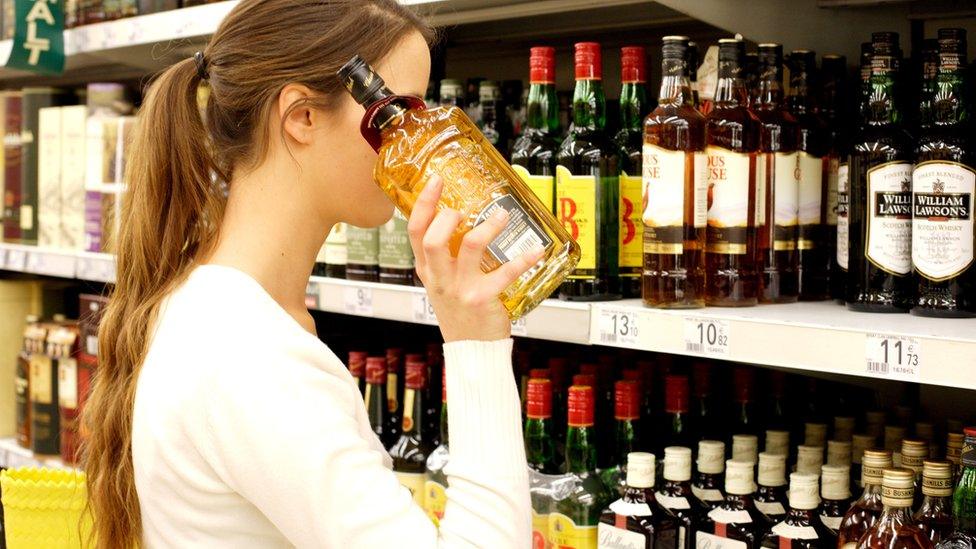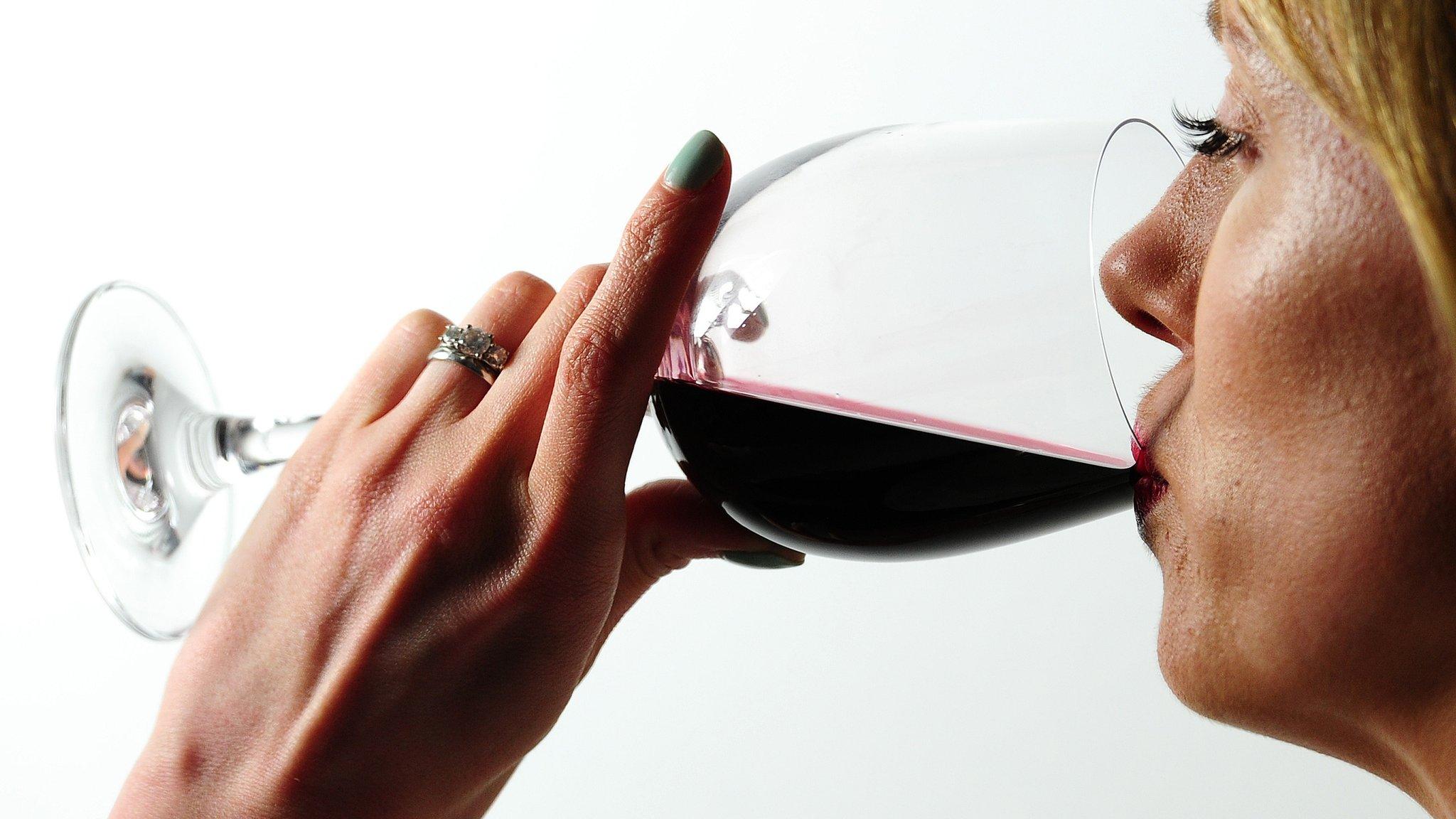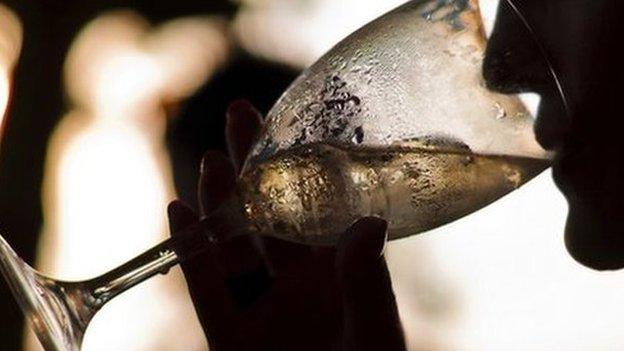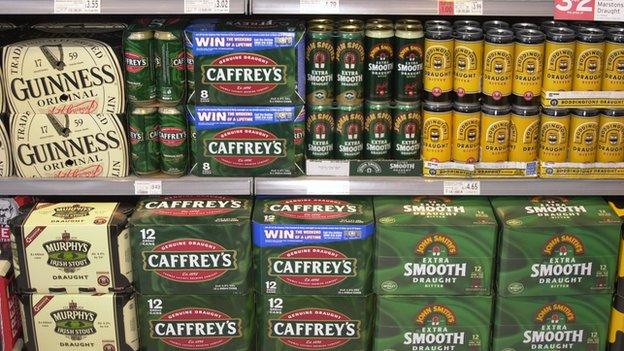Health advisers call for minimum alcohol unit pricing
- Published
- comments

Introducing a minimum price per unit of alcohol in England would improve the health of the heaviest drinkers, a review by Public Health England says.
The report found that although alcohol consumption has dropped since 2008, those in poorer communities are more likely to suffer or die from alcohol-related disease.
The coalition government rejected a minimum price for alcohol in 2013.
Health ministers said they would look at the evidence carefully.
The public health review says that alcohol is now more affordable and people are drinking more than they did 40 years ago, making it the leading risk factor for ill health, early death and disability in those aged 15 to 49 in England.
More adults are non-drinkers but there are still more than 10 million people in England drinking at levels that could damage their health.
The report suggests there were 167,000 years of working life lost to alcohol in 2015 - mainly among the young and middle-aged.
It concludes that reducing the affordability of alcohol is the most cost-effective way of reducing alcohol harm.
New alcohol guidelines: Are you drinking more than you think?
But a plan to introduce a minimum price of 45p per unit of alcohol was shelved by the coalition government three years ago.
In 2014, a ban on the sale of alcohol below cost price, defined as alcohol duty plus VAT, came into force in England and Wales.
'Reductions in harm'
Public Health England (PHE) says implementing a minimum unit price (Mup) is the answer because it "is a highly targeted measure which ensures tax increases are passed on to the consumer and improves the health of the heaviest drinkers".
It also adds that combing Mup with an increase in taxation would lead to "substantial reductions in harm and increases in government revenue".
The report also says there is little evidence to suggest that putting more information on labels on alcoholic drinks would lead to a reduction in alcohol-related harm.
A spokesman for the Department of Health said: "While no one would want to interfere with the right of adults to enjoy a drink responsibly, this report shows clearly that the abuse of alcohol can cause significant health problems."
And it added that new official guidance on alcohol limits, which say that men and women should drink no more than 14 units of alcohol a week, allowed people to make informed choices.
Families wrecked
Prof Kevin Fenton, national director of health and wellbeing at PHE, said alcohol damaged more than just individuals.
"Excessive alcohol consumption can harm children, wreck families, impact on workplace colleagues and can be a burden and drain on the NHS and economy.
"This evidence review will help local and national government and public services like the police and NHS to develop policies designed to reduce the harmful effects of alcohol."
Shirley Cramer, chief executive of the Royal Society for Public Health, said she was hopeful that the evidence would be taken on board by government.
"The health harms of alcohol affect all sectors of society, but are felt most by the poorest and most vulnerable.
"All the evidence now points to Mup as one of the most effective potential ways to tackle these inequalities in harm."
In Scotland, laws for the minimum pricing for alcohol were passed in 2012 but have not yet been introduced because of a series of legal challenges.
The Welsh Government has said it wants to set a minimum 50p charge per unit of drink but UK ministers say alcohol law should be controlled by Westminster.
- Published15 September 2016

- Published8 January 2016

- Published15 July 2015

- Published1 October 2014

- Published4 February 2014
